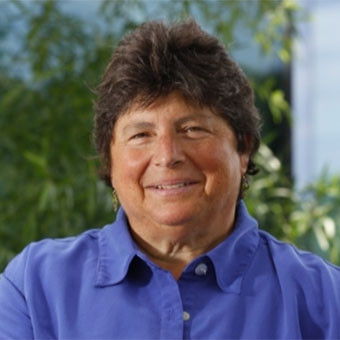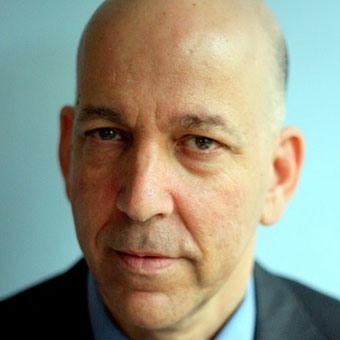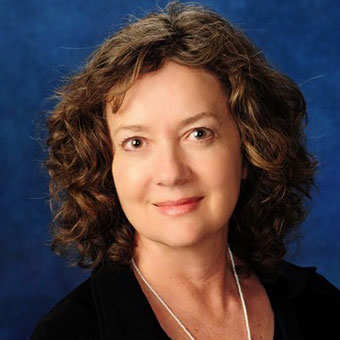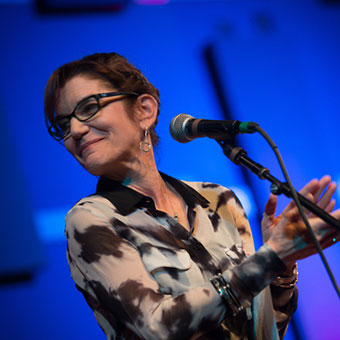Executive Committee
The Executive Committee is responsible for key decisions related to IMPACT.

Cynthia E. Cohen is director of the Program in Peacebuilding and the Arts at the International Center for Ethics, Justice, and Public Life at Brandeis University, and director of IMPACT — Imagining Together: Platform for Arts, Culture and Conflict Transformation. At Brandeis, she initiated an undergraduate minor in Creativity, the Arts, and Social Transformation. Cindy has written extensively on the aesthetic and ethical dimensions of conflict transformation, including the chapters "Engaging with the Arts to Promote Coexistence" and "Creative Approaches to Reconciliation." She co-edited and co-authored "Acting Together: Performance and the Creative Transformation of Conflict," a two-volume anthology accompanied by a documentary film and a toolkit of educational and training materials. She holds a PhD in education from the University of New Hampshire, a Master's in urban studies from the Massachusetts Institute of Technology and a BA in ethnomusicology from Wesleyan University.

Lee Perlman, PhD, is the Tel Aviv-based associate of Brandeis University's International Center for Ethics, Justice and Public Life. He served as a research fellow at the Tami Steinmetz Center for Peace Research, Tel Aviv University, which in 2017 published "But Abu Ibrahim, We're Family!" Lee is a leading thinker and social entrepreneur in harnessing the power of creativity and the arts for conflict transformation. He researches arts, politics and cultural policy and seeks to understand and influence how artists create social change and open dialogue in conflict zones and divided societies.
Lee has been active with the Ethics Center's Program in Peacebuilding and the Arts for over a decade. He is part of the leadership team and an executive committee member of IMPACT: Imagining Together: Platform for Arts, Culture and Conflict Transformation (ACCT), a worldwide collaboration to design and activate strategies to strengthen the arts, culture and conflict transformation ecosystem. He has been an active participant in the Acting Together on the World Stage community of inquiry as a co-contributor to the "Acting Together: Performance and the Creative Transformation of Conflict" (New Village Press, 2011), and in Acting Together conferences and events around the world.
Perlman has co-authored a number of research works and analyses of peacemaking and peacebuilding activities, informed by his practitioner experience as founder and director of the Israeli-Palestinian Encounters Unit of the Melitz Centers in Jerusalem, and has published articles and opinion pieces in the Ha'aretz newspaper, Moment Magazine, The Times of Israel, The Jerusalem Report and Sh'ma: A Journal of Jewish Ideas.
Perlman serves as president, board of directors of RECAST, Inc. Lee is a member of the steering committee of IRAC: The Israel Religious Action Center of the Israel Movement for Progressive Judaism. He served as chair, board of directors, of the Daniel Centers for Progressive Judaism, Tel Aviv-Jaffa and chair, artistic committee of ISRA-DRAMA, the International Spotlight on Israeli Drama Festival. In 2013, Ha'aretz named Perlman as one of "The 100 Most Influential People in Israeli Culture." He has previously served as executive director of the America-Israel Cultural Foundation and as director of grants and programs of the Abraham Initiatives, an organization promoting shared society and equality

Polly O. Walker is of Cherokee descent and a member of the Cherokee Southwest Township. She is currently Director of the Baker Institute for Peace and Conflict Studies and the Elizabeth Evans Baker Professor of Peace Studies at Juniata College in the United States. Polly earned her PhD at the University of Queensland in Australia where her research focused on conflict transformation between Aboriginal and Settler Australians.
She has published in a wide range of peer-reviewed journals and contributed chapters to a number of edited volumes on topics related to cross cultural issues in conflict transformation, Indigenous approaches to peace, and the role of ritual and performance in peacebuilding. Polly is co-editor, along with Dr. Cynthia Cohen and Prof. Roberto Varea, of "Acting Together: Performance and the Creative Transformation of Conflict Vol. I: Resistance and Reconciliation in Regions of Violence and Vol. II: Building Just and Inclusive Communities."
Polly is chair of the Indigenous Education Institute whose work supports ethical collaboration with Indigenous peoples and Western scientists supporting the revitalization of Indigenous knowledge systems.
She serves as board member for the Peace and Conflict Studies Institute of Australia, the International Peace Research Association and the Peace and Justice Studies Association.
Polly is an experienced trainer. She was a lead trainer and program developer in a six-year international Kastom Governance program in Vanuatu, which was conducted under the auspices of the Australian Centre for Peace and Conflict Studies, AusAid and the Malvatumauri National Council of Chiefs. Polly also conducted mediation training with the Solomon Islands National Peace Council, and conflict transformation training with an Aboriginal Community Development organization on Palm Island in Queensland, Australia.

Toni Shapiro-Phim serves as associate professor of Creativity, the Arts, and Social Transformation and assistant director of the Program in Peacebuilding and the Arts at the International Center for Ethics, Justice and Public Life at Brandeis University.
Toni received a PhD in cultural anthropology from Cornell University. Her dissertation, books and other publications focus on the history and cultural context of the arts in relation to violence, migration, conflict transformation and gender concerns. She's held teaching and research appointments at the University of California-Berkeley, Yale University and Bryn Mawr College, and worked in Cambodian, Lao and Vietnamese refugee camps in Indonesia and Thailand. She's also conducted years of ethnographic research in Cambodia.
Co-editor of "Dance, Human Rights and Social Justice: Dignity in Motion," and co-author of "Talking Dance: Stories from the South China Sea," she has also contributed to "Annihilating Difference: The Anthropology of Genocide," "The Choreography of Resolution: Conflict, Movement, and Neuroscience" and "Reflections in the Aftermath of Mass Violence," among other publications. Her documentary film, "Because of the War," about four women — mothers, refugees, immigrants, survivors of Liberia's civil wars, and superstar recording artists — was awarded the 2018 Elli Kongas Maranda Prize from the American Folklore Society for outstanding work on women's traditional, vernacular, and local culture and/or work on feminist theory and folklore.
Immediately before moving to Brandeis, Toni was director of Programs at the Philadelphia Folklore Project where she conducted ethnographic research, curated exhibitions and produced performances, humanities forums and publications highlighting aspects of the cultural practices of Philadelphia's diverse communities, all in collaboration with artists and community groups working for equity and justice.